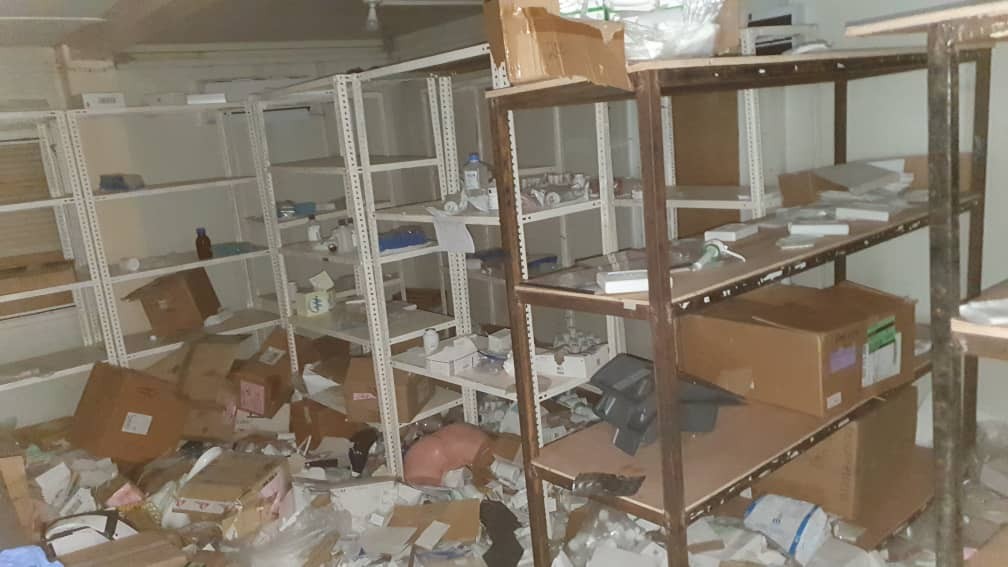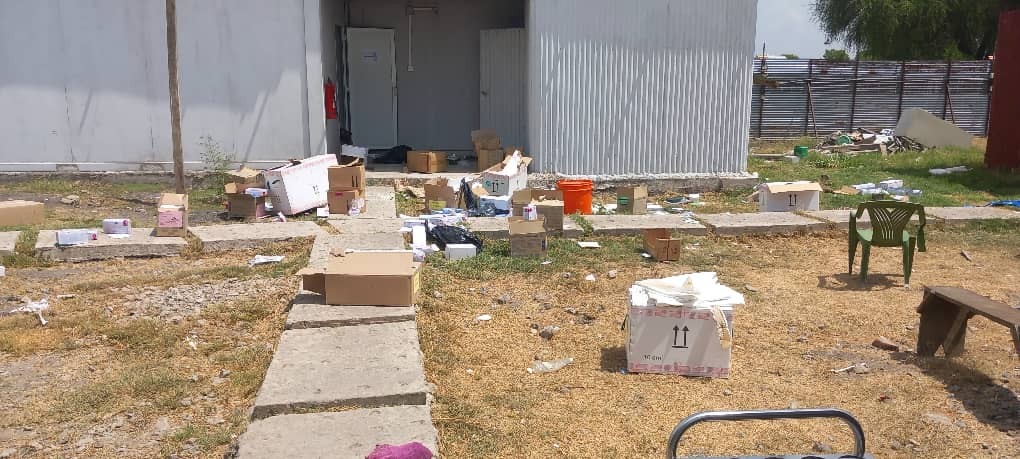
Médecins Sans Frontières (MSF) has permanently closed its hospital in Ulang, Upper Nile State, and withdrawn support to 13 primary health facilities in the area due to safety concerns.
The decision follows a violent incident on April 14, 2025, when armed individuals invaded the hospital, threatened staff and patients, and looted the facility. The hospital, which MSF said it had invested millions of euros into, was severely damaged.
According to the medical charity, the intruders took medical equipment, laptops, beds, and mattresses, along with €135,000 worth of medicines, enough to care for thousands of patients for months. The destruction has left the hospital unable to function.
“They took everything: medical equipment, laptops, patients’ beds and mattresses from the wards, and approximately nine months’ worth of medical supplies, including two planeloads of surgical kits and drugs delivered just the week before. Whatever they could not carry, they destroyed,” said Zakaria Mwatia, MSF head of mission for South Sudan, in a statement.
“The extensive losses from the looting have left us without the necessary resources to continue operations. We have no other option but to make the difficult decision to close the hospital and our support to 13 primary healthcare facilities, as they all relied on the hospital for medical supplies, referrals, and technical support.”
This was the second attack on MSF in the area within three months. In January, MSF boats delivering supplies were shot at, forcing the crew to jump into the water to escape. Shortly after the looting, another MSF hospital in Old Fangak was bombed, leading to a suspension of activities.
MSF said these attacks severely disrupt access to healthcare for communities that depend on its health facilities.
With the closure of the Ulang Hospital, the area, stretching over 200 kilometers from the Ethiopian border to Malakal, now lacks any secondary healthcare facilities.
The closure has increased pressure on the remaining health facilities, especially in Malakal, which has seen a rise in patients recently.
“The security situation in the area remains volatile, with ongoing clashes in neighbouring regions. MSF prioritises the safety of its staff and patients and the integrity of our services, but the current environment makes it impossible to ensure either. We are deeply concerned by the growing trend of attacks on healthcare and the devastating impact this has on communities. We urgently call for the protection of patients, healthcare workers, and medical facilities at all times,” Mwatia added.

Since launching in 2018, the MSF project in Ulang has provided essential healthcare services to over 150,000 people. This included running a secondary care hospital and supporting 13 primary healthcare facilities.
Over the past seven years, MSF stated that it has conducted more than 139,730 outpatient consultations, admitted 19,350 patients, treated 32,966 cases of malaria, and assisted 2,685 maternal deliveries, among other vital services.
Despite these closures, MSF said it remains committed to addressing the healthcare needs of displaced and vulnerable people in Ulang and Nasir counties.
It noted that a mobile emergency team is assessing needs and preparing to provide short-term healthcare services along the Sobat Corridor, depending on security conditions, while it continues to operate in other projects in Upper Nile State, including Malakal and Renk Counties.

